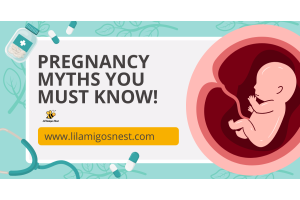Healthy Teeth are Important for the Overall Health of Your Child
Baby teeth are all about cute smiles. Good dental care begins before the baby's first teeth appear. Just because you can't see teeth doesn't mean they don't exist. Teeth begin to form in the second trimester of pregnancy. The first baby teeth break through the gums and into the mouth at 6 months of age. These are usually the front and lower teeth. The last baby teeth to come into the mouth is at 3 years of age were in the upper jaw at the back of the mouth. At this age, your child may have 10 upper teeth and 10 lower teeth.
Healthy teeth are important for the overall health of your child
Good oral care can help establish good dental habits as your child grows. Poor oral care can lead to infection, disease, or other dental problems. This puts them at risk for childhood tooth decay, which begins before the first teeth appear. Tooth decay is caused by bacteria and can occur more easily if the teeth are in contact with sweet fluids — formula, milk, juice, and breast milk (which contain sugar) — and are not cleaned regularly. Tooth decay in early childhood can affect your child's health and cause pain, making it difficult for your child to sleep, eat, or talk. It also affects your child's concentration and ability to learn. Children who develop tooth decay at an early age are more likely to suffer from it throughout childhood.
Steps to take care of your child's teeth:
- Wash hands before and after brushing teeth.
- Rinse the toothbrushes thoroughly after brushing and make sure each toothbrush dries without touching them.
- Change toothbrushes every few months, the bristles will be smoothed out with use.
- Between meals, quench, thirst for water. Do not offer candy, dried fruits (including raisins), and sugary drinks or juices.
- Take your child for regular dental visits (every 6 months, unless prescribed by your dentist).
Brushing and Flossing
Dental hygiene should begin when your baby is an infant. Start using a soft baby-sized toothbrush at 1 or 2 years old. Make your child brush his teeth with water at least twice a day. You can also add a small dose of fluoride-free toothpaste. This type of toothpaste is safe for your child to swallow. Once your baby is old enough to spit out toothpaste, you may switch to fluoride-containing ones. Use only a small amount. Your child needs help brushing their teeth until they are 7 or 8 years old. At this point, they may start using a larger sized toothbrush. You should change toothbrushes every 3 to 6 months or when wearing bristles. Children should brush their teeth for 2 minutes. Flossing is another important part of your child's oral care routine. Teach your child to float at least once a day.
You need to teach your child to brush their tongue. This helps to reduce the bacteria in the mouth.
After eating and drinking (except water), make sure your child knows to brush their teeth before bed.
Cavities are holes that form in your teeth. Cavities occur when bacteria are left on the teeth after eating and when food is not brushed away. The acid collects on a tooth, softening its enamel until a hole - or cavity - is formed.
If you suffer from tooth decay or gum disease, your children are also at greater risk. So sometimes even the best brushing and flossing habits can't block the cavity. Be sure to call your dentist if your child complains of tooth-ache, which can be a sign of a cavity that needs treatment.
Signs if your child has cavities:
- They have white spots or brown areas on their teeth.
- Have ongoing specialized health care needs.
- Do not go to the dentist often.
- Early birth (premature) or low birth weight.
Children who eat a lot of sugary foods and beverages are also at higher risk for cavities
Do not let your child have too much soda, fruit juice, or sugary drinks. Limit sweet snacks and drinks between meals
Children lose their baby teeth between the ages of 6 and 12 years. In the process, your baby will have a mixture of teeth, as children will fall out and adults will break.
Visiting the dentist from an early age can help your child feel more comfortable. It also establishes a good habit of routine dental examinations. Everyone should see a dentist twice a year.


























